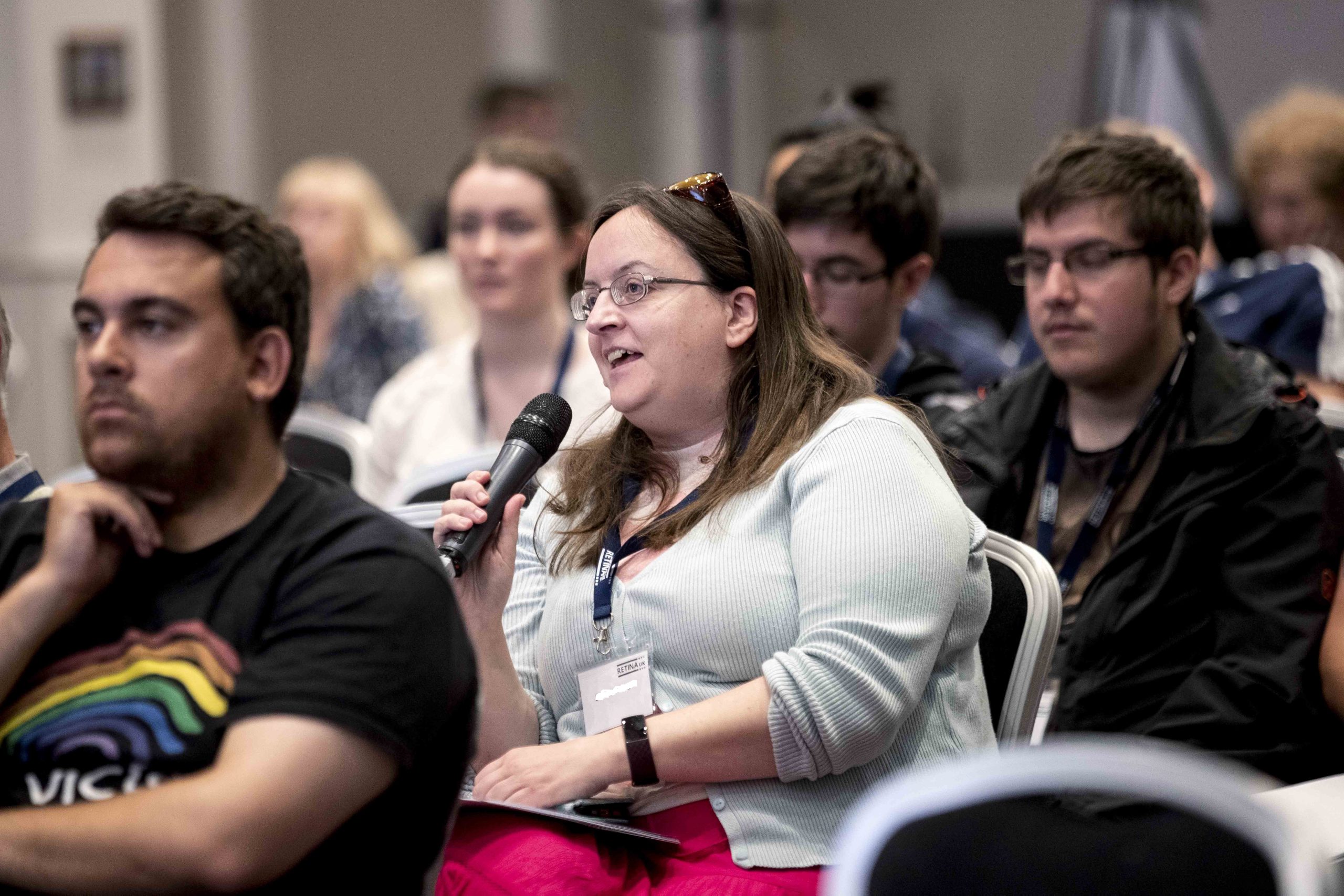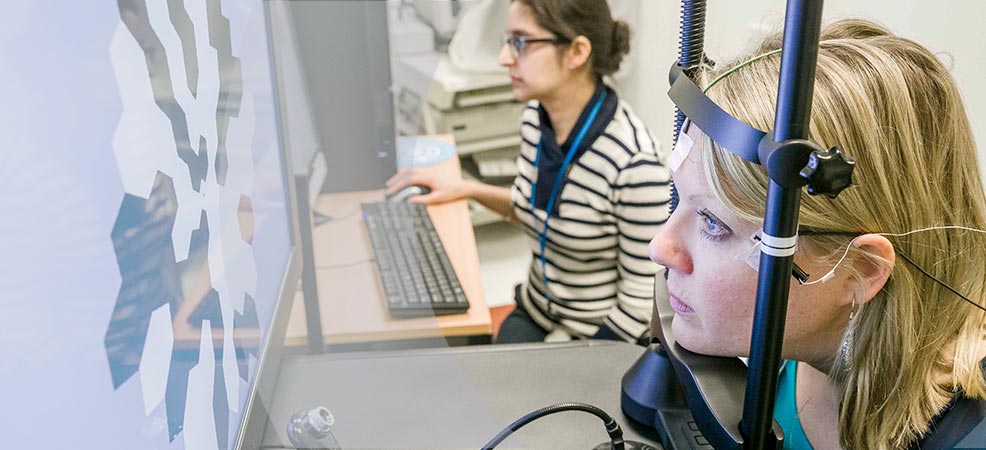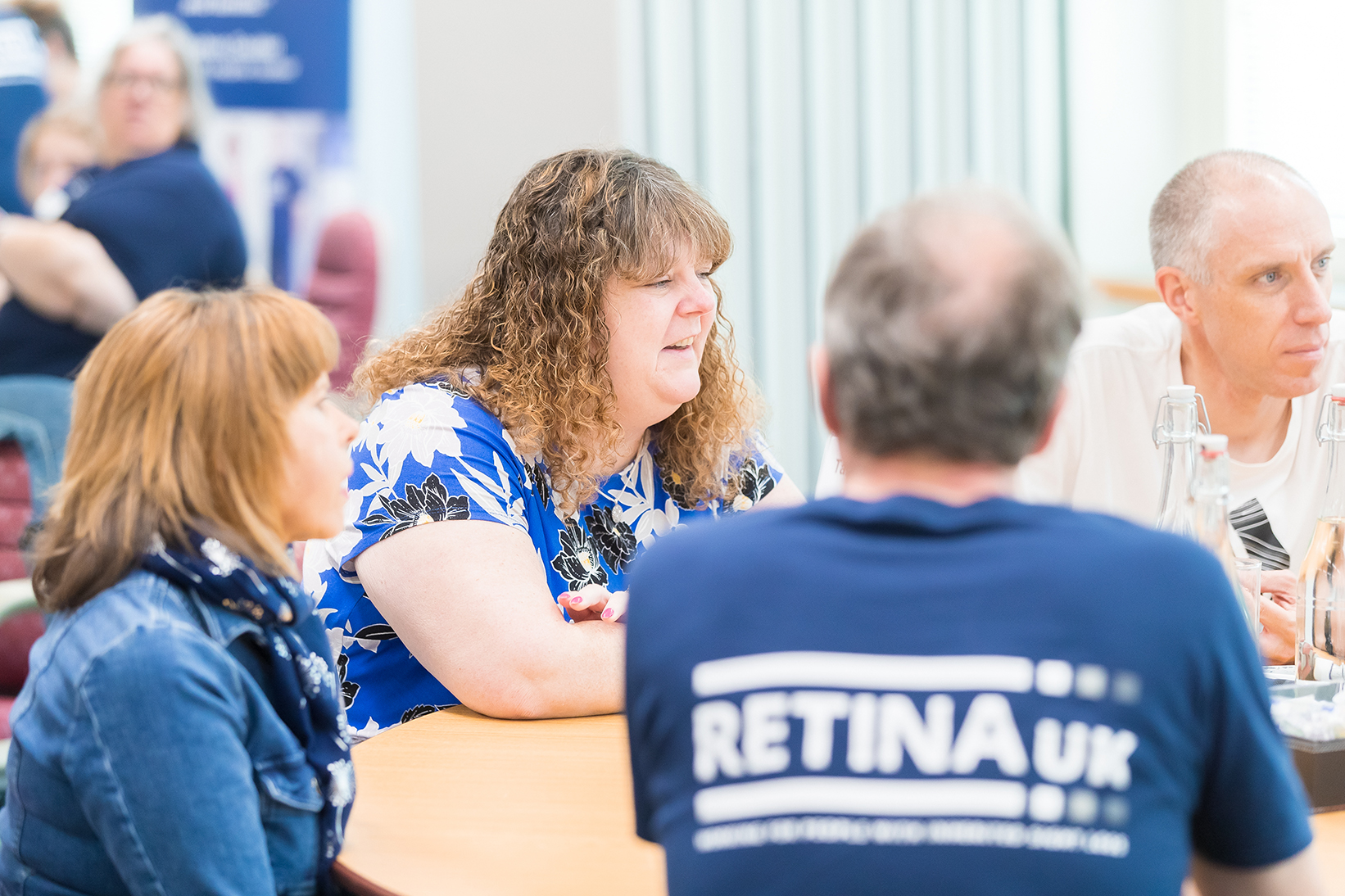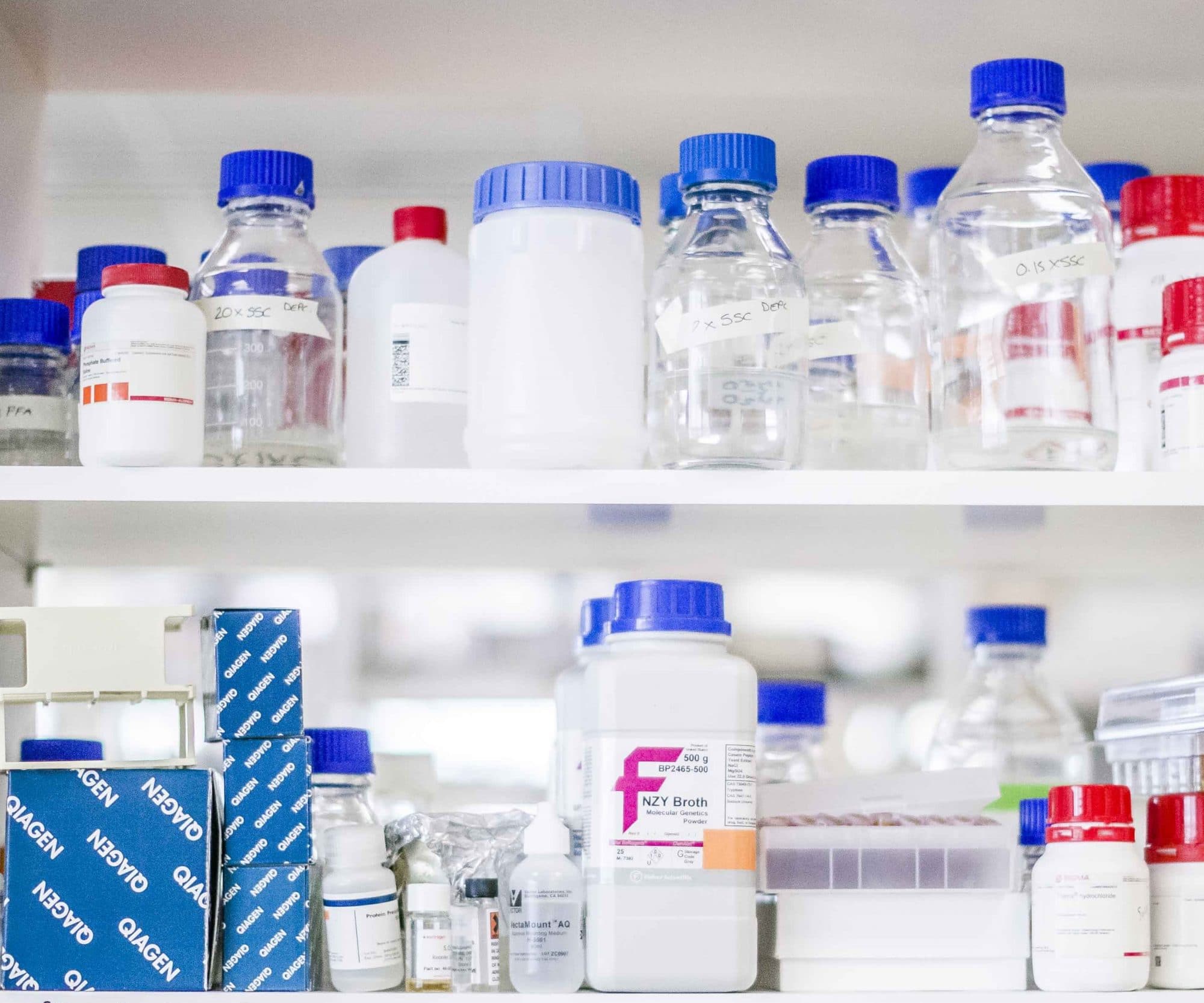It is the result of degeneration of the specialised light-sensing photoreceptor cells that line the back of the eye.
The vision loss due to choroideremia gets worse over time, eventually leading to blindness; however the rate of progression can vary between individuals. Choroideremia is likely to be underdiagnosed as its symptoms are quite similar to a number of other retinal conditions such as retinitis pigmentosa. The distinctive appearances of the back of the eye and X-linked inheritance pattern help eye doctors to make the diagnosis.
Symptoms
Choroideremia causes damage to the network of blood vessels behind the retina that are known as the choroid. The choroid supplies oxygen and nutrients to support and nourish the retinal pigment epithelial (RPE) cells and the photoreceptor (rod and cone) cells. One of the earliest symptoms of the condition is difficulty seeing at night time as the rod cells degenerate.
Over time, the visual field narrows and progresses to tunnel vision; severe visual impairment commonly occurs in late adulthood.
Cause
Choroideremia is most often due to mutations in a gene called CHM. The CHM gene encodes a protein call Rab escort protein 1 (REP1), which is involved in transporting small sacs (vesicles) containing essential substances to different locations within cells. REP1 malfunction can lead to high levels of oxidative stress in retinal cells, ultimately causing their degeneration.
The exact mechanism of degradation of the different parts of the retina in choroideremia is still not fully clear and may differ between individuals. So far, there have been 280 mutations identified in the CHM gene that can result in choroideremia. Most of these mutations result in a non-functional copy of the gene, which results in the production of a protein that doesn’t work properly or a complete lack of protein.
The CHM gene is located on the X chromosome and choroideremia is passed through families in an X-linked inheritance pattern. Females have two X chromosomes, but generally only one of the chromosomes will carry a faulty copy of the gene and the other functioning copy will compensate. Therefore, females are usually asymptomatic carriers of the condition or experience mild symptoms, although in rare cases they may be severely affected. Males only have one X chromosome, so if the CHM gene is faulty there is no second copy to compensate, resulting in choroideremia. Find out more at RetinaUK.org.uk/genetics/inheritance-patterns.
Treatment
There are currently no treatments available for choroideremia but gene therapy clinical trials are being explored. A drug-based approach could potentially be helpful for people with certain types of CHM mutation, and this is currently being explored in animal models of choroideremia.
Clinical trials
Visit RetinaUK.org.uk/medical-research/joining-the-research-effort for clinical trials information. If you are considering joining a trial always discuss it with your usual ophthalmologist or family doctor first. Participation in a genuine clinical trial will never require payment.
You can also read about possible treatment approaches for retinal disease at RetinaUK.org.uk/medical-research/approaches-to-treatment and the latest news about research at RetinaUK.org.uk/research-news.
Many treatment approaches are specific to a particular gene fault, so it is important that those affected by the disease are referred for genetic testing so that they can access new treatments and clinical trial opportunities.
For support
The Retina UK Helpline provides information, support and signposting for people affected by inherited sight loss as well as healthcare and education professionals.
Contact 0300 111 4000 (9.00am – 5.00pm Monday to Friday and Tuesday and Thursday evenings 5.00pm – 8.00pm) or email [email protected].
Condition-specific information
Gene Vision gene.vision/knowledge-base/choroideremia-for-patients. Retina UK joint funded Gene Vision and input into accessibility and content.
Getting involved in research
Those who join the Retina UK Lived Experience Panel receive an email from us when we are made aware of participation opportunities such as focus groups, surveys and research projects. Sign up at RetinaUK.org.uk/get-involved/lived-experience.









